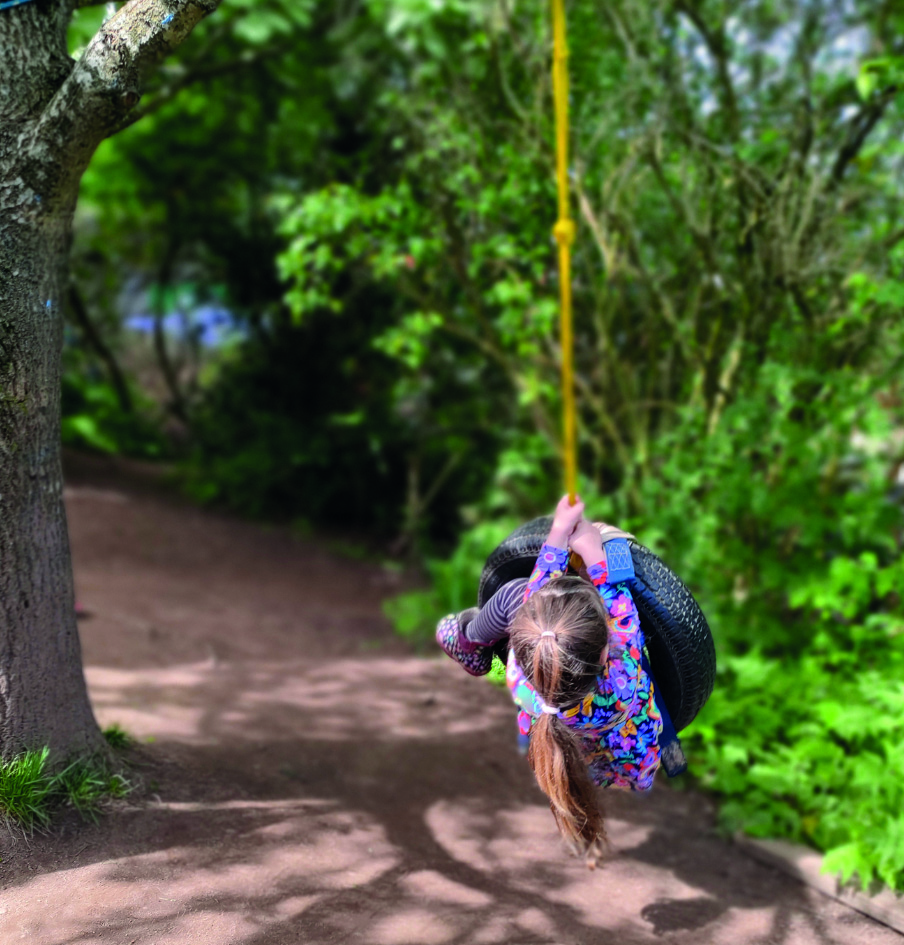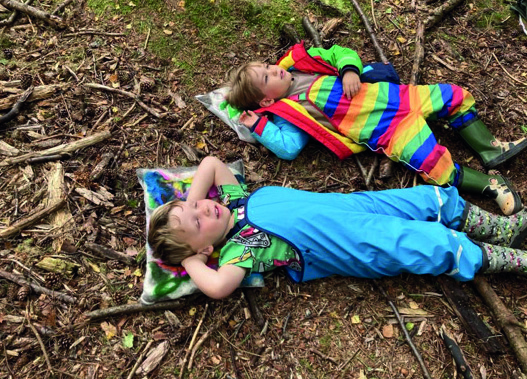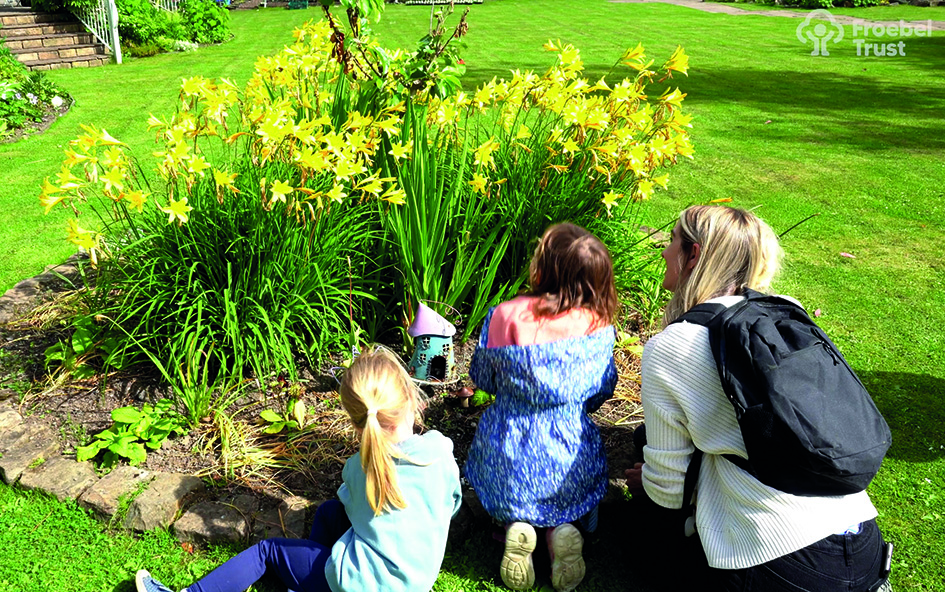
Slow pedagogy is an unhurried approach that aims to be more conscious of the relationship with time and its impact on both young children and practitioners. It is about valuing the present moment and being attentive to children’s pace, rhythm and interests.
A slow pedagogy enables children to revisit their ideas and creations, places and stories, and creates opportunities for children to go deeper in their learning. Support is given for time for observation, listening, reflection and documentation.
This series aims to help practitioners visualise and apply these slow practices day to day.
This may involve reclaiming ways of working that are not necessarily new in themselves but give a different way of thinking about how time can be used. A slow pedagogy can include periods of fast-paced activities too in keeping with how young children’s movements and interests change.
A key question to think about through this series is who might benefit most from slow practices, in terms of children and adults? What might more slow, attentive moments make possible?


BEING ‘SLOW’ OUTDOORS
Being with young children outdoors opens up many opportunities for thinking about slow practices and a less hurried approach. The idea of time to ‘be with’ young children was one of the key features of a slow pedagogy to emerge from the ‘Slow knowledge and the unhurried child’ research funded by the Froebel Trust. ‘Being with’ can involve feeling permission to be fully engaged in what children are doing rather than always being driven by the clock and other demands.
- Nature works to different timescales – not clocktime but cyclical time, as seen in the seasons and in growing time. Making time for children to plant seeds and watch things grow is part of introducing children to different ways of thinking about time.
- Unhurried time to play outdoors can support young children in developing many skills, including their physical co-ordination, through perseverance and gives possibilities for strengthening social relationships.
- It is easier not to feel the pressure of the clock outdoors and to feel more freedom as practitioners to enjoy the present moment with children.
- Slow pedagogy can lead to fast moments too when children’s attention is caught by something unexpected in nature and their ideas and interests take off in new directions.
Time is not the only ingredient needed, though. Froebel emphasised importance of contact with nature but also the principle of ‘freedom with guidance’, highlighting the role of the skilled practitioner in this process. Slow pedagogy is not about tuning out but tuning in. It is not about lethargy but attentiveness.
SLOW PRACTICES OUTDOORS
What do slow practices look like outdoors? Here are some ideas that you may be enjoying doing already, together with others to try. Slow pedagogy gives another way to value the less hurried ways of being with young children and to explore new possibilities for enabling children’s confidence and imagination to grow.
- Visiting and revisiting the same places with children: Even the youngest children can become ‘at home’ in a different environment. Revisiting in an unhurried way can also create time for stories and games to grow and for their imagination to thrive. This revisiting could be to a park or play space or to a tree.
- Stretching a visit: A regular visit to an urban park, for example, could be extended to make it into a longer visit with less pressure for both children and adults. Practical arrangements could be made to bring snacks or lunches along. What might then be the benefit if both children and adults didn’t need to ‘rush’ back so soon? (see Case study).
- Taking crafts outdoors: Sewing, weaving and woodwork are some of the activities that can introduce a different pace to activities outdoors. One idea is for children to felt their own cushion to take outdoors, to sit and lie down on and closely observe nature, as Juliet Robertson explains in her Creative STAR blog (see Further information).
- Supporting play in the Mud kitchen: Freedom to use this outdoor play space can enable imaginative play to deepen. Children can be given time to collect ‘ingredients’ from what is around them – grass, flowers, petals, sticks, mud and sand. These might become ‘soups’ and potions and familiar recipes as stories develop and grow.
- Supporting ‘risky play’: It takes patience to support young children as they learn to climb or attempt a new physical challenge, but the rewards for children, educators and parents can be great. Patience is a characteristic of a slow pedagogy, with attention to a framework of safety.
CASE STUDY: ‘stretched time’ outdoors in Falkirk
 Donna Green, early years pedagogue and Falkirk Froebelian lead, co-ordinated a study in 2021-2022 to explore slow pedagogy and Froebelian principles, funded by the Froebel Trust.
Donna Green, early years pedagogue and Falkirk Froebelian lead, co-ordinated a study in 2021-2022 to explore slow pedagogy and Froebelian principles, funded by the Froebel Trust.
She supported three of these Scottish early learning and childcare (ELC) settings to think about developing their slow practices, and each chose a starting point that fitted with their context. Bantaskin ELC chose slowing down in nature:
‘They had been out in nature and they identified that they needed to slow the pace of the day and spend much longer periods of time outdoors,’ she explains.
Sam Hill, senior early years officer, decided to extend the period of time children were spending outdoors by taking a group of young children each week to the local park for a whole day.
Sam explains, ‘I think one good thing about slow pedagogy is it’s not all about the end result, so it’s not all about “we have to get to Dollar Park for a certain time, then we need to have snack at this time and then get back”. Often it takes us a really long time to get here.
‘There are horse chestnut trees along the way, so if the children want to look at the conkers on the ground we will stop and pick them up and feel them and talk about their texture, and if that all takes half an hour, that’s absolutely fine.’
There is a strong sense that a less hurried approach means there is permission for children and adults to enjoy the journey as well as the destination and be open to the unexpected.
Many thanks to
Sharon Imray, Poppies Pre school, Aberdeenshire; Sam Hill, Bantaskin ELC, Falkirk; Donna Green, Early Years pedagogue, Falkirk ; Michelle Sandison, Whalsay ELC, Shetland; Juliet Robertson, Creative STAR Learning; Flora Jenkins, Froebel Trust.
FURTHER INFORMATION
Nursery World: Outdoor 2022 calendar by Julie Mountain; ‘Taking time back’ by Alison Clark, 2022; ‘We’ve explored…a special tree’ by Annette Rawstrone, 2023: search nurseryworld.co.uk
Juliet Robertson’s website is a treasure box of creative ideas with young children outdoors. Search https://creativestarlearning.co.uk
A short film of the slow pedagogy and Froebelian principles project is available to watch with more information and other free resources for practitioners: https://www.froebel.org.uk/training/films/slow-pedagogy
Clark A. (2023) Slow Knowledge and the Unhurried Child: Time for Slow Pedagogies in Early Childhood Education. Routledge









